Baolin Chong
Joint Beamforming and Power Control for D2D-Assisted Integrated Sensing and Communication Networks
Aug 19, 2024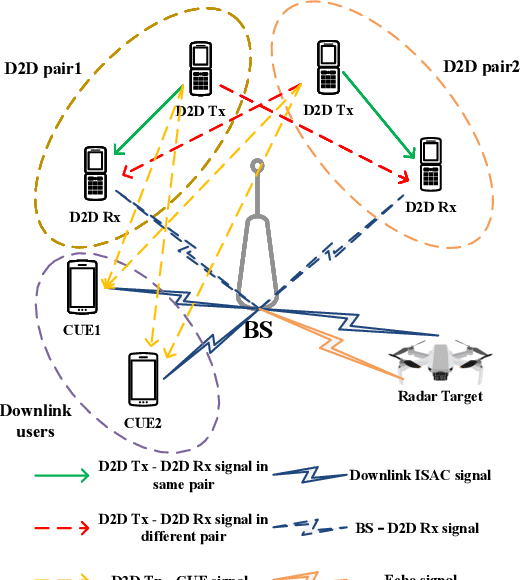
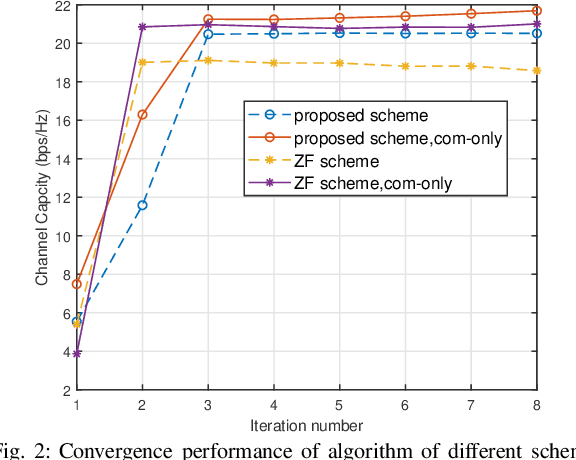
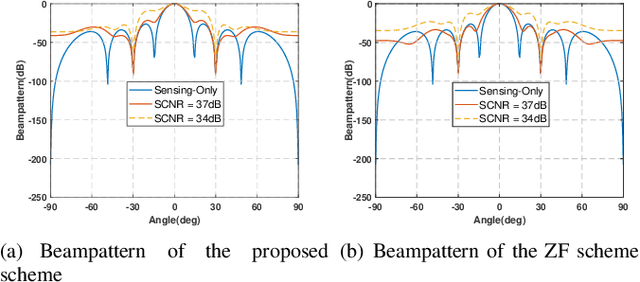
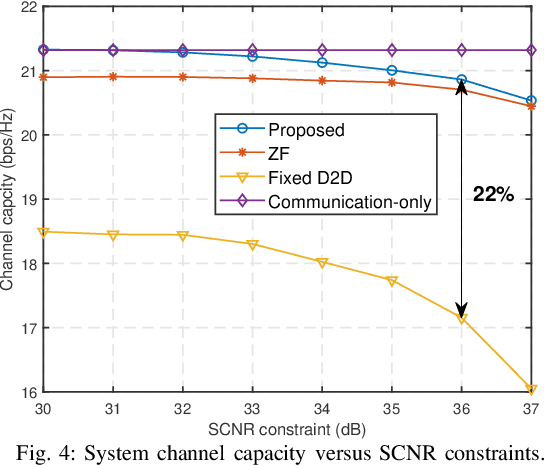
Abstract:Integrated sensing and communication (ISAC) is an emerging technology in next-generation communication networks. However, the communication performance of the ISAC system may be severely affected by interference from the radar system if the sensing task has demanding performance requirements. In this paper, we exploit device-to-device communication (D2D) to improve system communication capacity. The ISAC system in a single cell D2D assisted-network is investigated, where the base station (BS) performs target sensing and communication with multiple celluar user equipments (CUEs) as well as D2D user equipments (DUEs) simultaneously communicating with other DUEs by multiplexing the same frequency resource. To achieve the optimal communication performance in the D2D-assisted ISAC system, a joint beamforming and power control problem is formulated with the goal to maximize the sum rate of the system while guaranteeing the performance requirements of radar sensing. Due to the non-convexity of the problem, we propose the algorithm to transform the origin problem into a relaxation form and obtain the solution. We also proposed the zero-forcing (ZF) beamforming scheme to acquire the solution that can eliminate the interference of the BS on DUEs. Extensive numerical simulations demonstrated that with the assistance of the D2D communications, our proposed algorithm significantly outperforms the baseline schemes in the system sum rate.
Towards Decentralized Task Offloading and Resource Allocation in User-Centric Mobile Edge Computing
Dec 03, 2023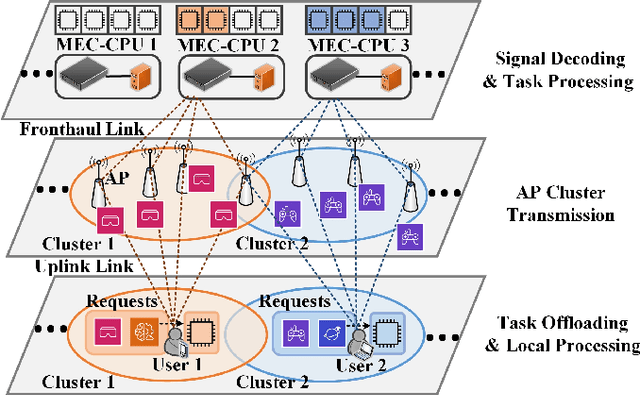
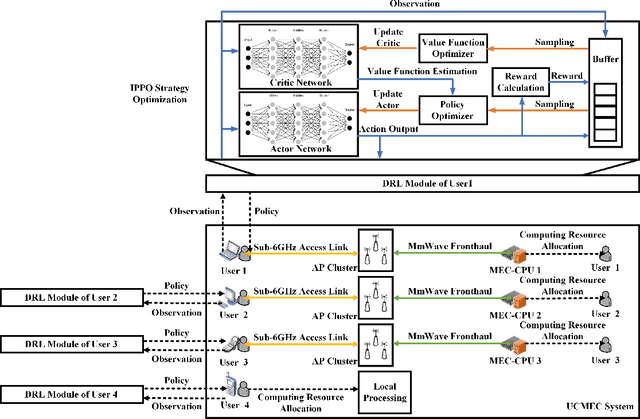
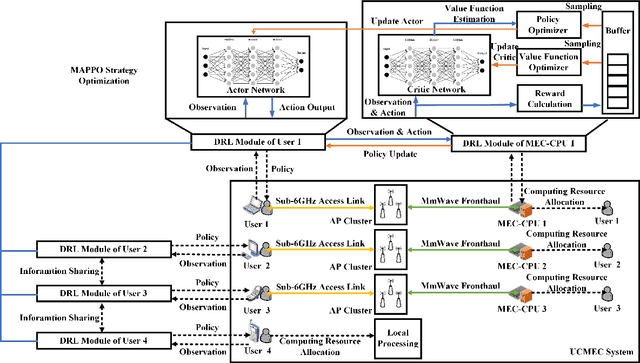
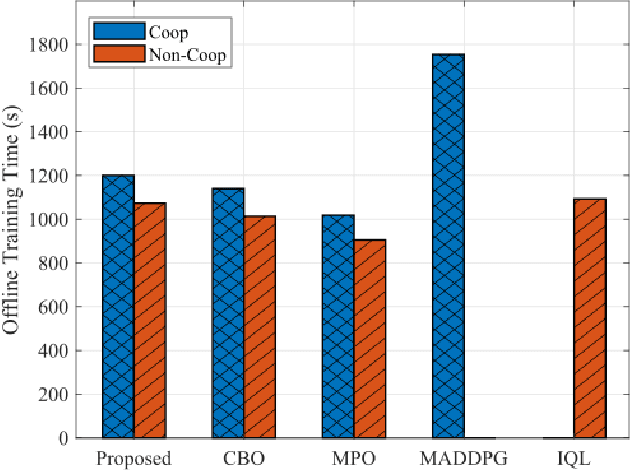
Abstract:In the traditional cellular-based mobile edge computing (MEC), users at the edge of the cell are prone to suffer severe inter-cell interference and signal attenuation, leading to low throughput even transmission interruptions. Such edge effect severely obstructs offloading of tasks to MEC servers. To address this issue, we propose user-centric mobile edge computing (UCMEC), a novel MEC architecture integrating user-centric transmission, which can ensure high throughput and reliable communication for task offloading. Then, we formulate an optimization problem with joint consideration of task offloading, power control, and computing resource allocation in UCMEC, aiming at obtaining the optimal performance in terms of long-term average total delay. To solve the intractable problem, we propose two decentralized joint optimization schemes based on multi-agent deep reinforcement learning (MADRL) and convex optimization, which consider both cooperation and non-cooperation among network nodes. Simulation results demonstrate that the proposed schemes in UCMEC can significantly improve the uplink transmission rate by at most 343.56% and reduce the long-term average total delay by at most 45.57% compared to traditional cellular-based MEC.
 Add to Chrome
Add to Chrome Add to Firefox
Add to Firefox Add to Edge
Add to Edge